
Antonia Hernández, activist, philanthropist and attorney. Photo courtesy of the California Community Foundation.
“My dad never went to school. He taught himself how to read and write and my mom went up to the fifth or sixth grade,” Antonia Hernández said.
Hernández is an attorney, activist and philanthropist who grew up in Torreón, Coahuila. She was the first Latina to hold the position of staff counsel to the Senate Judiciary Committee, where she worked on immigration and civil rights issues. But her life started in 1948 in an ejido, or communal ranch in Mexico, until she was seven years old, when she moved with her family to the Maravilla Housing projects in East Los Angeles the following year. Despite her parent’s lack of education, it was instilled in Hernández and her siblings that they would all receive higher education.
“My father knew that he brought us to the [United] States so we could get an education and all of us, all of his seven children, are highly educated. He would say, ‘We all have jobs. Your job is to get good grades in school.’ We knew we were going to college and we knew we were going to East LA College. We knew we were going to go to Cal State LA, we just didn't know we were going to UCLA.”
Turning her passion into a career in law
Despite the endless taunting of “mojada,” or “wetback,” from her classmates, Hernández worked hard as a young girl learning English, selling her mother’s tamales in East LA with her father and picking crops with her family in the summers. The attorney’s political career began in the 1960s with the support of her father who would drive her to Chicano movement protests, which was only the beginning for Hernández’s career and education.
After graduating from Garfield High School in East LA, Hernández was admitted into the University of California, Los Angeles (UCLA) as part of an affirmative action program after attending East LA College. Always interested in history growing up, she earned her bachelor’s in history in 1970 and went on to receive her teaching credentials in 1971 from UCLA as well as her J.D., or doctor of law, from the UCLA School of Law in 1974.
“I didn't know a single lawyer,” Hernández said. “I didn't know what lawyering did. All I knew was that lawyers could make changes, so I went to law school to change the conditions of my community, the Mexican-American, Chicano community. To change the laws. I went to law school to be a public interest lawyer.”
Exceeding expectations
Despite being underrepresented at the time, as a Latina, she never once felt hesitant or discouraged to continue reaching for higher education, something she is proud of as she looks back at her self-determination and resilience.
“I'm very stubborn, very self-driven,” Hernández said. “I'm very self-directed and nobody's gonna stop me from doing what I want to do, whether it's reasonable or not. Those characteristics helped me. And I've never had challenges academically. Once I put my mind to something, I do it. I had a ball. I had a great time and I loved UCLA. I was very involved in the Chicano movement with the few of us that were there. I loved it. I never had imposter syndrome. Wherever I went, I belonged.”
Hernández began her civil rights law career as a staff attorney with the Los Angeles Center for Law and Justice where she worked on the class-action lawsuit, Madrigal v. Quilligan, 1978, which was filed by 10 Mexican-American women against the USC/Los Angeles County Medical Center for involuntary or forced sterilization. Though they lost, reforms were enacted to prevent similar violations going forward.
The first Latina
Being the first Latina Senate counsel “Was liberating,” she said, “because I could make all the mistakes. Nobody had made them before me. I think what helped me there was my sense of assurance. I had to work harder and I was not as well-prepared. I had a public education, and they all had a private education. But I was successful. I didn't allow myself to be held back.”
Also in 1981, Hernández joined the Mexican American Legal Defense and Educational Fund (MALDEF) as regional counsel. In 1985, Hernández became a U.S. citizen, and in the same year, she became the MALDEF’s president and generalcounsel. As president, she directed advocacy programs as well as led the organization’s legal pursuit of Latinx-majority voting districts across the country, including Garza v. County of L.A., 1990, and King v. Illinois State Board of Elections, 1995.
“As a woman running MALDEF, [I was] finding common ground, fighting, sometimes losing the struggle, losing the issue, but we kept going,” Hernández said. “I tell my kids ‘Go for it. If someone says, ‘No,’ you know you went for it. If you fail, you ask why and you get better the next time. Go for it.’ And I didn't have dreams, because you can't dream of what you do not know. But doors were open for me and I went in.”
In 2004, Hernández took over the position of President and Chief Executive Officer of the California Community Foundation (CCF), one of Southern California’s largest and most active philanthropic organizations as well as a resource committed to making a difference in LA County through advocacy, outreach and community investments. Throughout her leadership, the CCF has granted over $3.4 billion, with a focus on health, housing and economic development, education and immigration programs.
An advocate for the Latino community
Hernández officially stepped down as CEO of the CCF last October, but her passion for civil rights and the well-being of the Latino community has never faded.
Hernández is on the board of directors of the Automobile Club of Southern California, Center
on Budget and Policy Priorities, Educational Testing Service, Forest Lawn Memorial-Park Association, Grameen America and Urban Institute, as well as the advisory boards and committees of the Commission on Presidential Debates, Healthy California for All Commission and UCLA Board of Advisors among others. She has also received an honorary doctorate of humane letters from Whittier College in 1998 and Brown University in 2016.
As she retires, Hernández encourages young Latinas to follow their dreams regardless of what others might say just as she did. “Embrace your womanhood. Being a woman is an asset, we just need to know how to use it and embrace it. That's what I would say to young Latinas.”
CALÓ News sat down with Hernández to discuss CCF, her advocacy for the Latino community and her future as she steps down as CEO.
Can you talk about the CCF and its mission/goal? How did you get involved?
The California Community Foundation's mission is to serve the interest primarily of LA County, we are a community foundation. It's committed to improving the lives of the poor and the vulnerable in LA County. We fund just about every community clinic, we are the largest scholarship provider in LA County, we fund immigration issues and we fund and provide loans to build low-income housing. We are here to improve the quality of life for LA County and the staff is very committed to assisting in these programs. I've been very fortunate that every job I have, I love what I do. I get paid to do what I love to do. How lucky am I? And [the CCF] came to me. I was approached to see if I was interested in running a foundation. And my belief was, ‘I ran MALDEF, I ran Legal Aid. I can run a foundation. Whatever it is, I can do it.’
Why is the CCF such an important resource for LA County and the Latino community?
First of all, I serve all of LA County, but the fact that I'm a Latina, I bring that perspective to the work. We all bring ourselves to what we do and we interpret the world through our lenses. Understanding the needs of immigrants because I'm an immigrant, understanding the needs of the poor because I was poor. I grew up in the Maravilla projects. Understanding public education. I went to Garfield High School. I know those needs and I know housing is important. We lived in the projects and at that time, the projects were wonderful. I have nothing negative to say about the projects. My parents worked at every labor job that you can think of. For my mother when she worked at the company that cleaned chickens, she would come home with her hands bloodied. I know how hard it is. My father worked making bricks. I know the conditions that need to improve. That's LA. 10 million people; we have the richest people in the world and the poorest people in the world. How do we bring that together? That’s the CCF. How do we bring resources from those who have them and provide them to those who need them? We're like a bridge, delivering resources. And I think being a Latina, being a woman and a mother, I know what it is to be a mother. I think that’s what it’s like for all individuals. If you're African American, you bring that experience. But you cannot stop there. As a Latina, I'm also a human being. Poverty doesn’t know color. Hunger doesn't know color. Serving the needs of all people equally. It gives me great joy to have been part of that. That I was not part of the problem, but was part of the solution. And I think in all my jobs, that's what I have been proud of, that I have worked in jobs that allow me to improve the quality of life for people.
You have spent more than four decades advocating for social justice and improving the lives of underserved communities in LA County and beyond. Why is this so important to you, and more specifically, how have you advocated for the Latino community?
As a Chicana of the 1960s, I was part of all of that, the arousing of the Latino community to advocate for ourselves. I'm retiring, I will have spent 50 years doing that. And for me, I know it sounds corny, but I'm a practicing Catholic and the Lord put me in this world to do good. To me, that's what I've done. I'm in this world to do good, to improve life, and to say, at the end of my life, you know what? I did well. A teacher is doing good. An engineer whose building housing for the poor is doing good. It's whatever you do. If you put humanity in front of it, you're doing good. Yeah. The world is a mess right now. I am so saddened by what's happening in the Middle East. Rodney King said, ‘Can we all just get along?’ Can we respect one another? Can we acknowledge our common humanity? It's not that hard. I hope that when I die, and I go to the pearly gates and St. Peter, is there, he says, ‘Yeah, you did okay. You can come in.’
What does it mean to you to be such a great representative for the Latino Community?
If you respect me, I've achieved my goal. If you acknowledge that I tried to do good, then I've achieved my goal. I don't look for external validation because it's not about them, it's about me and what I have contributed to improving lives. I don’t look for external validation. I’ll give you an example. I drive to work and there's this homeless, elderly gentleman that sits right where I turn the corner. I tried to give him a dollar. It won't do much for him, but it says something about me. It's about you, and how it makes you feel. Why are you doing that? To me, one dollar isn't going to make a difference, but I'm sharing something. I'm acknowledging this gentleman and his humanity and I think that that's important. I'm very internally driven and I tell people, ‘You don't have to like me, but you have to respect me.’
Miguel A. Santana is the CCF CEO and president. What do you hope for him as he fills this position and the CCF under his leadership?
I hired him straight out of college and he worked for me at MALDEF. I am very happy that the [CCF] board chose him. He's a great leader, he has wonderful skills and he's grounded in the community. To me, that was the most important thing, being grounded in community. And he is. He loves LA, he's a product of LA, so CCF is going to be in really good shape with his leadership.
As you retire, what are you most looking forward to in the future?
Being a grandma, I have two grandchildren. Spending more time with my husband, my kids and my siblings. I want to take up dancing, flower arranging, piano, cooking and crocheting. I'm going to be busy. I was a really good dancer when I was young and then I married this wonderful husband of mine. Michael is a wonderful husband, but he has three left feet, so I haven't been dancing much lately. But I'm taking it up and I'm going to dance by myself if I have to. I'm going to take salsa. I love Latin dancing. In fact, my daughter just told me about Zumba. Even though I'm 75, I'm going to try!
What advice do you have for young Latinas and women out there?
This message is for young women and the message is, go for it. You can have it all, but not at the same time. I'm a professional, I'm a mother, I'm a grandma. I love being a mother, I love being a grandma and I love being a woman. And yes, you can have it all, but not at the same time. You have to make sacrifices. When I was having kids, the focus was work and kids. When they were growing up, the focus was on kids and work. Now I'm at the stage where my kids are adults and I can enjoy them as friends. I can enjoy my kids and my sisters. We have all these plans. We love to go to segundas, or second hand stores. We love to go to flea markets, we're going to do that. I'm going to be able to enjoy my siblings once again.

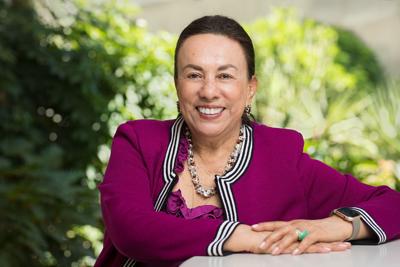
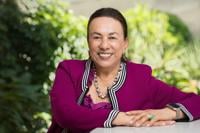

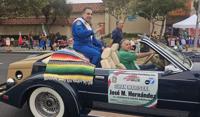

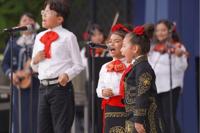

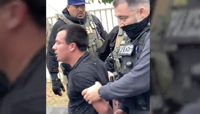

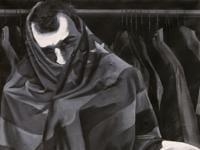
(0) comments
Welcome to the discussion.
Log In
Keep it Clean. Please avoid obscene, vulgar, lewd, racist or sexually-oriented language.
PLEASE TURN OFF YOUR CAPS LOCK.
Don't Threaten. Threats of harming another person will not be tolerated.
Be Truthful. Don't knowingly lie about anyone or anything.
Be Nice. No racism, sexism or any sort of -ism that is degrading to another person.
Be Proactive. Use the 'Report' link on each comment to let us know of abusive posts.
Share with Us. We'd love to hear eyewitness accounts, the history behind an article.